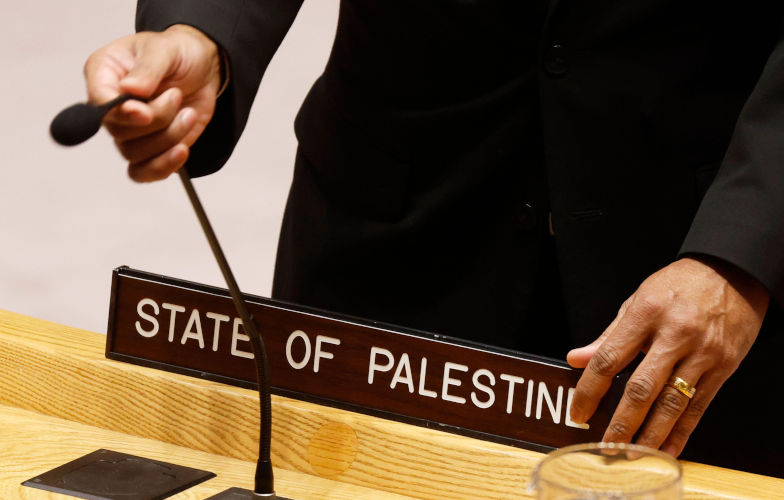Why Australia should recognise Palestinian statehood
May 30, 2025
The question for the Australian Government is, how can we most constructively persuade Israel to change course?
If Israelis are ever to have the security from terrorist attack they rightly crave, it is not going to be through the indiscriminate bombing, starvation, suppression and humiliation of their Palestinian neighbours. As the Hamas attacks of 7 October 2023 made horribly clear, without a political solution that satisfies legitimate Palestinian aspirations, Israel will never be free of the spectre of terrorism.
For the Netanyahu Government — and those who blindly support it — to remain in denial about the roots of Israel’s insecurity, and to offer no political way forward, is simply to invite more of the same. When people lose hope, their despair all too readily turns to rage, and rage all too easily turns into indefensible outrage. The truth of this decades-long conflict is that whenever there have been periods of genuine hope for a just and dignified settlement, the threat and reality of violence have rapidly diminished.
The question for the Australian Government, and others around the world who share our concern at the ongoing, and now further escalating horror in Gaza, is how can we most constructively persuade Israel to change course?
Imposing financial sanctions, travel bans and the like on the most egregious Israeli promoters and perpetrators of violations of Palestinian human rights — adding to those already imposed on violent individual West Bank settlers by the Albanese Government in July last year — would certainly send a powerful message.
But in my view the strongest and most constructive contribution Australia could make would be to announce at next month’s critical UN high-level conference that we are immediately recognising Palestinian statehood: not just as the final outcome of a political settlement but as a way of kickstarting it. Recognition is ALP policy, with Foreign Minister Penny Wong and her colleagues wrestling only with the timing – and the timing now is absolutely right.
Recognition has already been accorded by some 140 countries, mainly from the Islamic world and the Global South. What has been missing — and would add immensely to the international pressure on the Netanyahu Government — is the voices of traditional pillars of the Global North, including the UK, France, Australia and other US allies and partners.
The point of recognition now is to generate desperately needed new momentum for the two-state solution which, for all its difficulty of implementation, remains the only rational solution serving the long-term interests of both Israelis and Palestinians. No peace negotiation can succeed if the parties at the table are completely mismatched, as they are now. More or less universal recognition will give Palestinians crucial new leverage in producing just and sustainable solutions to the big outstanding issues, including boundaries, credible security guarantees for both sides, the protection of holy sites, and the fraught question of refugee rights.
None of the arguments against recognition have knockout force. The legal argument, that under the Montevideo Convention criteria, Palestine lacks the necessary defined territory, government and capacity to enter into international relations, is hotly contested on its own terms, and, in any event, confronts the reality that it reflects only the “declaratory” school of thought in international law; the rival “constitutive” school takes the view that it is the act of recognition by others that leads to the creation of a state.
The practical argument against recognition is that it is an empty, quixotic gesture: that even if every UN member bar Israel were now to accept Palestine as a state, that would not in itself create that reality on the ground. Yes, creating a credible physical entity out of the settlement-decimated West Bank and shattered Gaza will be nightmarishly difficult. And yes again, of course there are massive governance problems to be resolved on the Palestinian side, with the Palestinian Authority a corrupt gerontocracy and Hamas in its present form dealing itself out of any international acceptance with its military wing’s terrorist excesses.
But with strong regional and Western political and financial support, neither problem is totally insoluble. I am among those who have long believed that the imprisoned Palestinian activist Marwan Barghouti — popular in both Gaza and the West Bank — could be the Mandela-like unifier that Palestinians desperately need, and that Israel should, in its own interests, accept. And not all West Bank settlers are irredeemable ideologues: generous financial inducements to relocate may well make the task of redrawing the map there less impossible than often assumed.
For Australia and other holdouts, moving now to recognise Palestinian statehood would not be to reward Hamas for its 7 October outrage, as so many of Israel’s supporters continue to claim, but to benefit Israel. It would do so by creating new momentum for the two-state outcome that is the only credible path to its long-term security.
It is also the only path to maintaining Israel’s identity and international acceptability as both a Jewish and democratic state. As many have pointed out over the years with compelling logic — Bob Hawke prominent among them — Israel can be a Jewish state, a democratic state, and one occupying the whole of historical Judea and Samaria, but it cannot be all three.
By refusing to contemplate even the possibility of a Palestinian state, Netanyahu is serving only his own, not the national, interest. Conferring on Palestinians the extra legitimacy, leverage and bargaining power inherent in recognised statehood would help ensure not only for Palestinians, but also for Israelis, a future that is better than the awful status quo.
The views expressed in this article may or may not reflect those of Pearls and Irritations.


